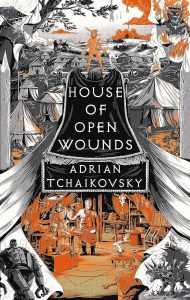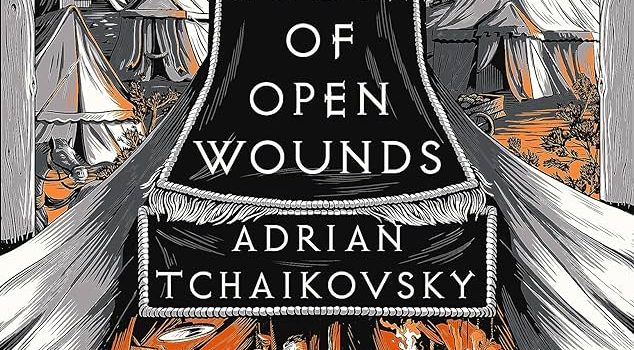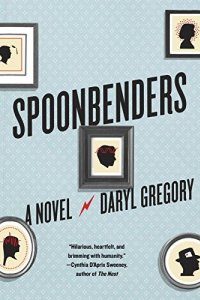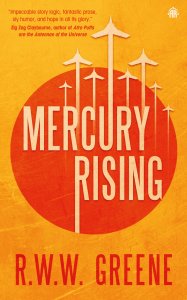Russell Letson Reviews House of Open Wounds by Adrian Tchaikovsky
 House of Open Wounds, Adrian Tchaikovsky (Head of Zeus, 978-1035901388, $27.99, 585 pp, hc) December 2023. Cover by Joe Wilson.
House of Open Wounds, Adrian Tchaikovsky (Head of Zeus, 978-1035901388, $27.99, 585 pp, hc) December 2023. Cover by Joe Wilson.
Adrian Tchaikovsky’s House of Open Wounds is a follow-on to The City of Last Chances that repeats many of the structural features of its predecessor: a large cast of viewpoint characters; ‘‘mosaic’’ chapters that provide authorial overviews and comments; a rambling story line that nevertheless draws the reader through its twists and turns; and cunningly planted bits of backstory that eventually provide a resolution that emerges just when one fears the whole thing is going to explode or implode catastrophically or tragically.
House of Open Wounds is not so much a direct sequel to The City of Last Chances as a separate tale set in the larger world of the endless wars of expansion carried on by the relentlessly organized and efficient state of Pallesand. Its primary connection with the previous book is via two characters: the meek, much-put-upon, not quite ex-priest Yasnic, and God, the ill-tempered, demanding, much-diminished deity he once served – ‘‘in His divine form as a scrawny, dirty man… wearing a ragged sheet for a robe and overall the size of a small yappy dog.’’ In the gap between the two books, Yasnic has worked at amateur first aid in his restive, Palleseen-occupied city of Ilmar while also smuggling abandoned and forbidden gods out of town before they could be discovered by Palleseen officials and ‘‘decanted’’ – rendered down for their magical energy. He has somehow avoided execution for his forbidden activities and instead been drafted into the Palleseen army as a medical orderly, where he is renamed Maric Jack (for his language/nationality and his many low-grade medical skills) and goes about with God and two other orphan deities hidden in a box he carries on his back.
This volume, like the earlier book, is named for its primary setting, in this case an experimental mobile field hospital where material and magical techniques are brought to bear on mostly physical battlefield damage. It doesn’t matter much that the wounds are produced by magic wands (‘‘batons’’) rather than, say, chemically propelled lead – though magic can enable a range of enhancements, such as the metaphysical doom caused by a ‘‘ghost-eater arrow.’’
This is not only Jack’s story, though, or even exclusively the hospital’s (though a wider aspect does develop gradually). Jack is part of a large cast (helpfully listed in a Dramatis Personae in the front of the book), about half of which is hospital staff. The officer reluctantly in charge is (somewhat ironically) a necromancer, Prassel, but the operational, hands-on boss is the massive Ollery, ‘‘The Butcher’’: triage chief, alchemist, surgeon, and occasional chef. His right-hand orderly and unofficial factotum is Banders, a much-demoted scrounger and black-marketeer who knows who and how to bribe, horse-trade, and connive everywhere. Lochiver is a disgustingly scruffy flautist (and another secret ex-priest) whose instrument draws sepsis out of wounds. His partner, the surgeon (and fugitive priestess) Tallifer, harbors the embers of a fire god. The most effective real healer is Alv, exiled from the perfection of The Divine City, who employs her considerable powers to take onto herself the wounds and damage of her patients. And at the bottom of the hierarchy, Jack and the self-effacing, ever-dutiful orderly Masty fetch and carry and dose and sew up as needed. As Ollery regards his realm,
Behind him, in the bowels of hell, his devils are at work. Cutting, flaying, rending, stitching, severing, scouring, decanting, disenchanting, decontaminating. Practicing each their own particular arts, a collection of miscreants and misfits not otherwise seen this side of the army paymaster’s rolls. And they know what they’re doing.
Beyond the hospital tents stretches a vast military camp, its culture marked by a familiar mix of rigid regulations, subtle insubordination, endemic corruption, concealed disloyalties, open ambition, covert competition, systemic cruelty, and endless ingenuity for doling out death and destruction, regardless of cost. It could be any war from Crimea to Korea, and its dark comedy reminded me immediately of M*A*S*H and Catch-22 and other works that address the relentless stupidities, ironies, and absurdities of war, from Mother Courage and Her Children and All Quiet on the Western Front to How I Won the War and Blackadder Goes Forth. The blasted-battlefield scenes particularly echo the landscape of WWI, while the pathological, totalizing ‘‘rationality’’ and expansionist enthusiasm of the Palleseen ‘‘Wars of Perfection’’ carry more than a whiff of the Third Reich.
The hospital staff and various associated specialists have to navigate this comic inferno of blood, gore, surveillance, punishment, and pathological ideology, armored by thick skins and a bleak, ironic humor that wards off the horrors. The individual plot lines and trajectories interweave and intersect in a peripatetic, episodic narrative – but then, war really is one damn thing after another, isn’t it? Jack is repeatedly dragged before higher-ups and repeatedly escapes the worst consequences of being who and what he is. Banders cuts deals, liberates and reallocates supplies, and collates rumor and observation. Alv and Prassel are pushed into innovative, deeply revolting weaponizations of their very different abilities, to their very different flavors of dismay. A midbook cast addition, the barracks lawyer Trooper Lidlet, saved and now trapped by the constraints of God’s healing protocol (do no harm or the healing is withdrawn and you die), takes on the task of unpicking God’s rules in search of loopholes and work-arounds, which puts her and her colleagues in an untenable position in relation to official notions of duty. And a through-line does develop, on both plot and thematic levels, based on the inevitable conflicts between healing and making war, as the military establishment seeks ways of weaponizing the powers that heal, while various official strangleholds threaten to pervert the hospital’s mission. These plot-engine machineries are scattered and slow to wind up – but they do eventually strike, to surprising and satisfying effect.
Tchaikovsky, like Charles Stross in the Laundry books, devises fantastic worlds with real horrors in them, forcing our gaze onto the barely clothed metaphorical outlines of the terrible things we do to each other and the dogged resistance offered by the victim-participants in the vile mills of misery that are totalizing governments and wars of aggression. If there is a moral use for the horrific in art, this is it.
Russell Letson, Contributing Editor, is a not-quite-retired freelance writer living in St. Cloud MN. He has been loitering around the SF world since childhood and been writing about it since his long-ago grad school days. In between, he published a good bit of business-technology and music journalism. He is still working on a book about Hawaiian slack key guitar.
This review and more like it in the February 2024 issue of Locus.
 While you are here, please take a moment to support Locus with a one-time or recurring donation. We rely on reader donations to keep the magazine and site going, and would like to keep the site paywall free, but WE NEED YOUR FINANCIAL SUPPORT to continue quality coverage of the science fiction and fantasy field.
While you are here, please take a moment to support Locus with a one-time or recurring donation. We rely on reader donations to keep the magazine and site going, and would like to keep the site paywall free, but WE NEED YOUR FINANCIAL SUPPORT to continue quality coverage of the science fiction and fantasy field.
©Locus Magazine. Copyrighted material may not be republished without permission of LSFF.







